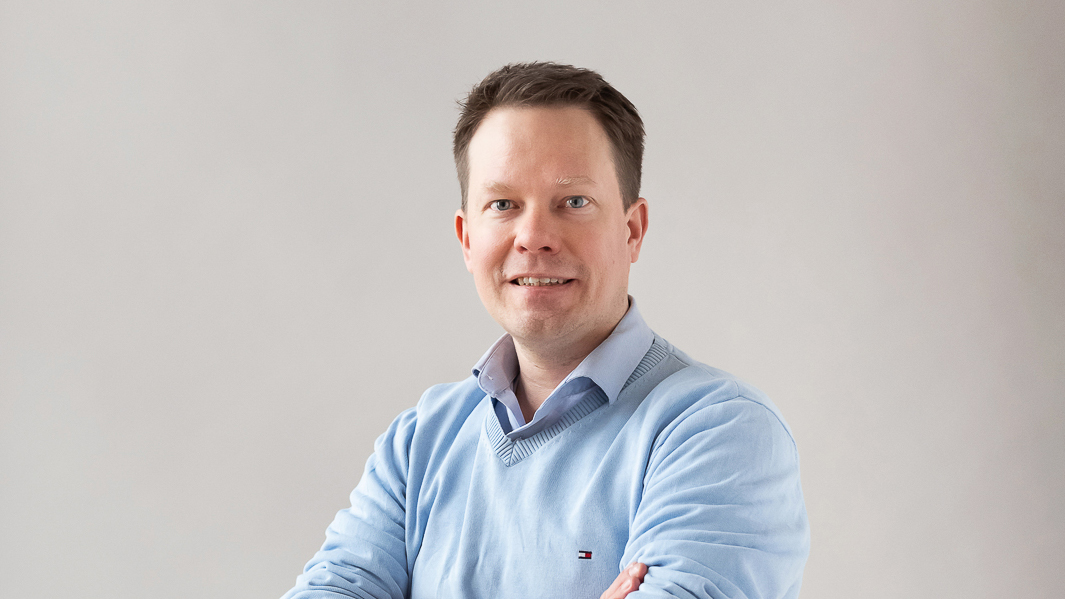A company that literally creates protein from thin air is already a scientific breakthrough. What additional value can AI bring to an organization already operating at the cutting edge of innovation?

This was the starting point for one of our most fascinating AI strategy projects. Our CEO Mika Aho shares how we tackled the challenge.
Who are you and what do you do?
I’m Mika Aho, the CEO and co-founder of Data Design. My role is hands-on: I’m heavily involved in delivering our client projects while also steering the company toward our shared goals.
You have extensive experience with data and AI. Has any particular project stood out?
Many have, but one recent highlight was definitely building an AI strategy and implementation roadmap for a company developing technology to produce protein from air.
What made this project so memorable?
The project was exceptional for two reasons.
First, the industry was completely new to me. While I had previous experience with bioprocesses in medicine - using AI to predict diseases from cultured cells - this was clearly a leap into the unknown.
Second, the company itself was exceptionally innovative. They were pushing the boundaries of science and industry in a way that was genuinely inspiring. Their passion and the technology's potential to revolutionize food production made a real impression. The challenge wasn't how do we digitalize, but how do we take a frontrunner even further.
What did the project actually involve?
Our task was to create an AI strategy and implementation roadmap that would support their product development, commercialization, and overall operational efficiency.
We started by identifying potential use cases, which we grouped under value-creating themes like improving operations, accelerating R&D, and discovering new commercial opportunities. We evaluated each case against multiple criteria, including business value, technical feasibility, and process readiness.
We mapped their existing data and assessed their maturity. Based on this, we created a data asset map showing which use cases could realistically be implemented with available data. Finally, we modeled three scenarios for renewing their data and AI architecture.
But we didn't stop at strategy. To make things concrete, we built two generative AI prototypes to demonstrate that some of the ideas were immediately implementable.
Isn't it risky for a client to bring in consultants who don't understand protein production?
You might think so, but often clients specifically want an outside party to facilitate the big picture within an agreed timeline. From an AI perspective, many applications are generalizable across industries. Under the hood, the algorithms, data structures, and technologies are largely the same.
In this project, we had the client's core team as our counterpart, bringing the necessary bioprocess expertise to the discussion. Meanwhile, the commercialization and operational efficiency challenges were very familiar to us from previous engagements.
What was the outcome and how was it received?
We created a comprehensive AI strategy and roadmap, supported by feasibility assessments and a clear data map. The prototypes concretely demonstrated that the ideas were practically implementable.
The reception was enthusiastic. What made the project unique was the breadth of stakeholders: we had people from sales, product development, production, and compliance - even chefs from the test kitchen.
This wide participation ensured we got the full picture of challenges and opportunities, and it strongly committed the organization to the outcome. Through the prototypes, we could show that AI wasn't just a buzzword but a tool that could directly support their work.
What challenges came up during the project?
The first challenge was personal - quickly absorbing a new industry. Fortunately, generative AI helped tremendously with gathering information and learning.
The second challenge was managing expectations across such a diverse stakeholder group, where perspectives ranged from researchers to chefs to top management. We solved this by breaking participants into smaller, targeted workshops, which made discussions more focused and effective.
Any other observations from the project?
The key insight was exactly what we hinted at in the beginning: even in the most innovative, futuristic industries, AI still has enormous potential. Even though the company was already pushing scientific boundaries, AI could still improve production efficiency, reduce resource consumption, and accelerate commercialization.
The core of AI strategy work is determining where to invest and what capabilities to build in alignment with future business objectives.
Can this strategy framework be applied elsewhere?
Absolutely, and we have. I've personally been involved in over 30 similar projects across very different industries.
From our collective learnings, we’ve refined a repeatable AI strategy framework. The framework ensures that the AI roadmap aligns with business strategy, includes a clear implementation plan, and is supported by the right digital tools.
We've also developed a digital tool leveraging multi-agent systems to support this strategy process. It helps teams with ideation, prioritization, and shaping their entire AI journey.
What was the best part of the project?
Definitely the collaboration. Working with such a diverse and international group was inspiring and ensured strong commitment throughout the organization.
Second, the moment when the early prototypes came to life. Seeing concrete results is always energizing, and in this case, it also strengthened the client's belief in their own AI strategy.
Six months later, it's been wonderful to follow their business development and new initiatives, where AI also plays a significant role.









.png)
.svg)

.svg)


.png)
.png)



.svg)